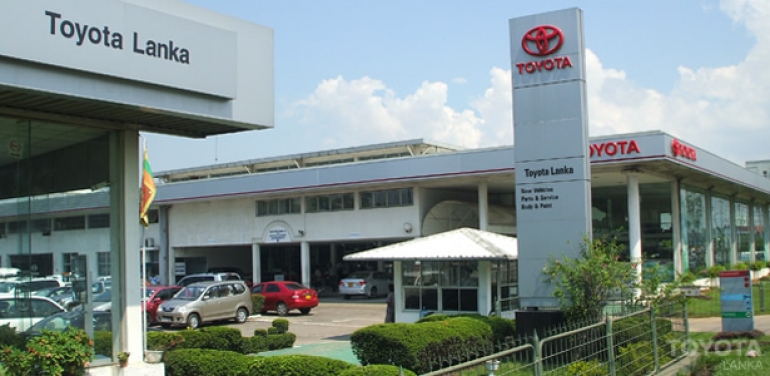I USE a Toyota and have no complaints, it is a good car. It performs well. Spares are freely available, right down to buying a second hand k radiator cap at a 'body parts' shop in Mirihana.
All this hoo-hah about Toyota having to recall 4.9 million cars because of a floor mat that could come loose and jam down the accelerator pedal seemed a little absurd at first to me. And the meaninglessness of 16 deaths due to runaway accelerators is really bad. Couldn't common sense fix the problem?
Toyota has told drivers to remove the mats and its solution for the sticky pedal requires a free half-hour shop repair. However, it is still unknown whether an electronic problem is also a culprit in the sudden acceleration. But Toyota says it isn't.
The damage done to Toyota by its recall of more than 5.3 million autos is accumulating: US sales dropped 16% in January, and the company's stock surrendered $21 billion of value in a single week according to TIME Magazine. To me this looks more like a full blown PR disaster more than anything else. Scanning the internet one could see hundreds of messages, articles and blogs floating around on the subject. A US PR expert has said that Toyota is being forced onto the defensive, which, as any PR person would know, is a bad place to be in.
I didn't think that fixing engines would in any way be a problem for a company that has been building motorised vehicles for years. The Toyota Production System (TPS) has been the hallmark of its efficiency, which has produced millions of cars over the years with very high standards. There are companies even in Sri Lanka that studied TPS and modelled their production systems to gear themselves for the ever-demanding efficiency required in modern day commodities.
So what went wrong? A book written by Jeffrey K. Liker on the Toyota Way divides its principals into four categories, all starting with the letter '13' — Philosophy, Process, People/ Partners and Problem solving. But as I rummage through information in the net on Toyota, clear to me (of course my research is not exhaustive) and that is that TPS might be very `inward' looking.
The TPS is all well and good when one is involved in lean manufacturing and the actual production of the car, which is eliminating wasted time and resources, building quality into workplace systems, finding low cost but reliable alternatives to expensive new technology, perfecting business processes and building a learning culture for continuous improvement.
But how much does the company know about their car when it leaves the manufactory to the people who use it? How long has Toyota really known about the current malfunction and when did they actually start to address the situation?
Did Toyota lose its way? Media reports indicate one of the main issues was that Toyota dealers did not know the extent of the problem when vehicle users complained of malfunctions in the car; there was no feedback from the top.
"When Catherine Block took her Toyota Aygo to her local dealer after a terrifying drive between Folkestone and Canterbury, she told mechanics: "It was a good job my brakes worked. Otherwise I would be dead." They laughed, she recalls. "They probably thought I was being melodramatic." This was hardly the case: during the 35-minute drive, she was able to drive up a steep hill at full pelt without pressing on the pedal once because the accelerator had stuck fast.
"Block, a 28-year-old student, had already taken her car into the Toyota dealership at least three times last autumn because of the sticky accelerator. On her first visit, mechanics said the problem was caused by the floor mat, and then they wondered if the specialist radio equipment she had installed was the cause. Eventually,
at the beginning of December, the mechanics replaced the pedal and the problem seems to have been solved. The dealership said hers was an isolated case." (Quote: The Observer - UK)
The Observer UK was critical: "Toyota's inept PR performance has done little to dispel the notion that it behaved in precisely the way we have come to expect of the most powerful members of corporate Japan. To be fair, Toyota is partly a victim of circumstance. Having found itself plunged into the cultural quicksand of crisis management in a globalised economy, it had little idea of where to turn for help. Yet that has done nothing to dispel the perception that in its pursuit of profit Toyota has lost sight of the principles on which it built its success: quality, reliability and, yes, safety."
In conclusion I could only say I would still go for a Toyota as it is a dependable brand in Sri Lanka and I still have a lot of faith in it, unlike its Western users. The consensus in Japan appears to view the recall as a blip
rather than an incubator for a long-term crisis; I would think the same.
(The writer, a PR consultant and head of Media360, was previously a mainstream journalist in print and electronic media. He also edits a new media website.)




